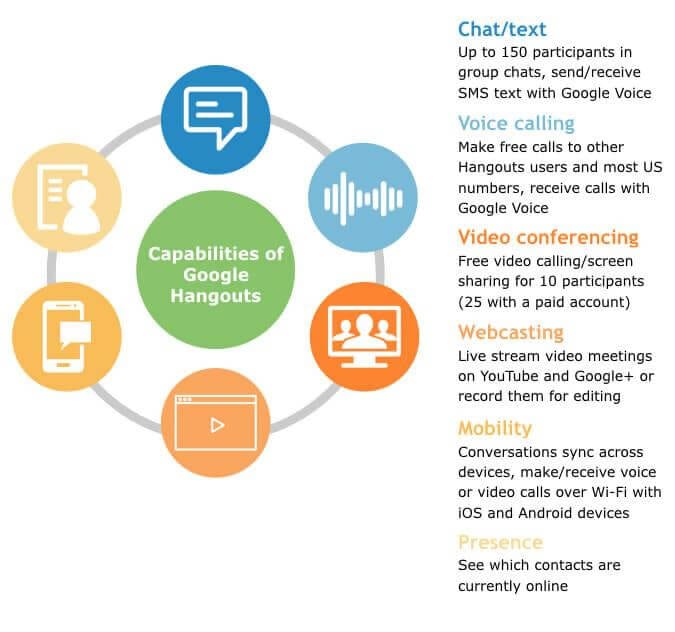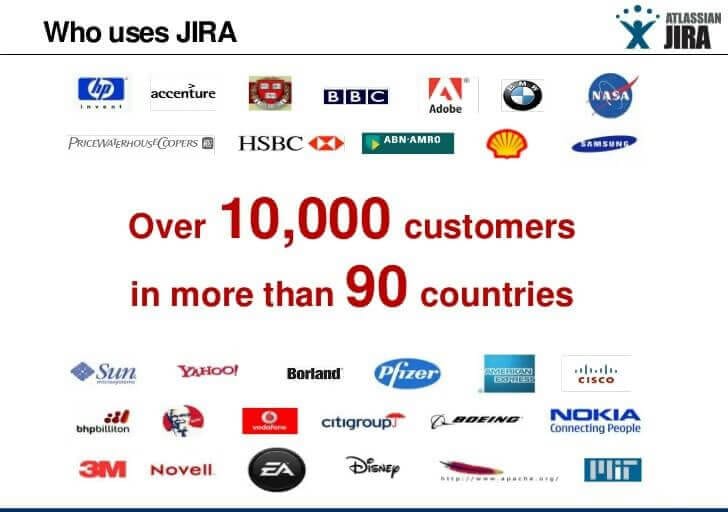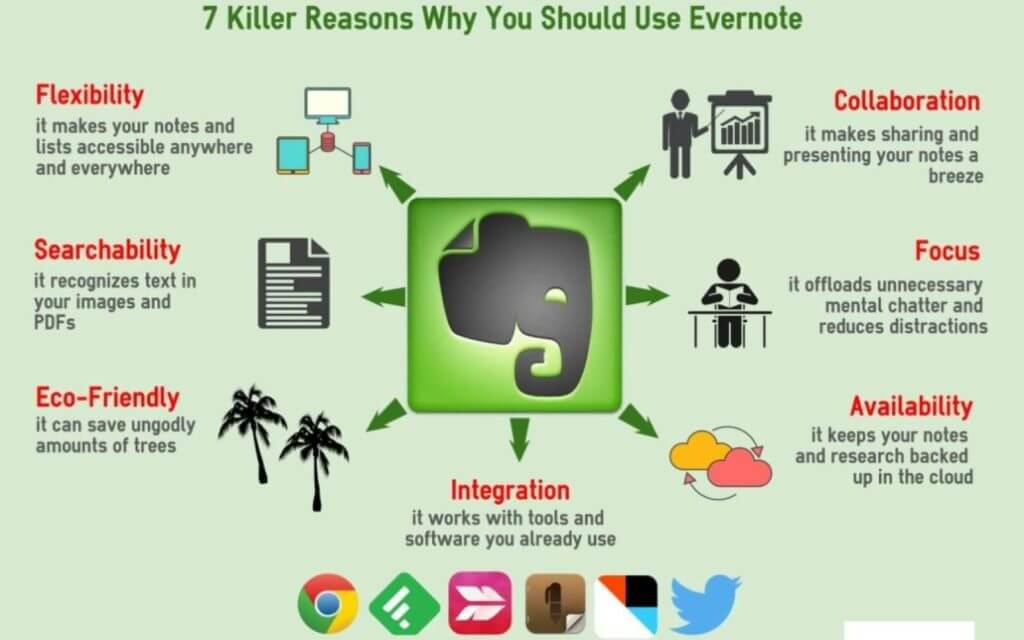In this day and age, the use of smartphones has become more of a necessity than a choice. From ordering food to booking movie tickets to performing work-related tasks, smartphones have become common in all spheres of our lives. As smartphone usage continues to grow rapidly, the demand for enterprise mobile application solutions has been increasing as well. A mobile app transforms how an organization (or its department or business process) works, improving productivity, increasing mobility, saving time, as well as other benefits.
In this post, we will explore the essentials of enterprise mobile apps development, so you could familiarize yourself with the basics before starting to develop one yourself.
What is an Enterprise App?
An enterprise app is a wide-reaching software system that operates according to a certain business logic and uses certain tools to help a company improve its operations and simplify processes for its employees. Such an app is designed to work in a business environment in one or several departments and solve issues in business processes in an enterprise, small to medium business, or government establishment.
An enterprise application is a crucial part of any IT system and is usually comprised of a collection of interconnected programs aimed at solving similar goals. These mission-specific and mission-critical solutions offer a wide range of services for a company’s employees, including content management, security tools, human resource management, app integration, interactive product catalogs, payment processing, sales tool automation, business process management, IT service management, manufacturing, and resource planning.
What is Enterprise App Development?
In essence, an enterprise app development is defined as the process of designing mobile-based software that helps a business perform and manage its internal operations, like scheduling, inventory, and communication. The main aim of enterprise applications development is to improve processes at a company in one way or another.
How Enterprise Mobile Applications Work
Built according to a certain business logic, aimed at solving specific tasks, and tailored to particular user group(s), enterprise mobile apps are integrated into a company’s existing IT infrastructure and sync with other systems in it.
Examples of Enterprise Applications
There is a wide array of applications popular among employees in companies across industries. Here are the examples of enterprise applications that companies cannot operate without:
- Google Hangouts — Video communication application developed by Google.

- JIRA – Issue tracking system designed for bug tracking and agile project management, by Atlassian.

- Evernote – Organizer used for note-taking, task management, and archiving, developed by Evernote Corporation

- Skype – Telecommunication app used for voice and video communication, developed by Skype Communications S. a. r. l.

- Trello – Used for prioritizing and organizing work tasks and projects through cards and boards (developed by Atlassian).

Enterprise Mobile Application Development Companies
Now, the time has come for more businesses to realize that using enterprise apps can help their employees get more work done faster, simplify operations, and earn more profit. Considering the high demand for enterprise mobile apps, we have gathered a list of the best enterprise app development companies that can aid you in creating effective and feature-rich applications which streamline your business processes and enable further growth.
- Intellectsoft – Founded in 2007, Intellectsoft is a software development company known for its intelligent software solutions. It has a wide set of competencies to meet different enterprise requirements. Boasting exceptional experience and expertise, Intellectsoft is the leading enterprise mobile app development company in the industry. Some of the company’s key clients are Audi, Jaguar, Universal Pictures, Hoosba, and many other top enterprises.
- Konstant Infosolutions – A premier software development company, Konstant Infosolutions offers an extensive range of software solutions worldwide since its inception in 2003. With a huge team of highly-qualified IT professionals, this company provides solutions spanning across e-commerce solutions, CMS development, UI/UX design solutions, IT consulting, and custom web development areas. Its key clients include Nestle, United Nations, Volkswagen, ThomasVille, RawBank, and more.
- Willow Tree – WillowTree, Inc. is one of the industry’s top players in mobile app development, offering powerful solutions to leading brands, including Fox News, Johnson & Johnson, HBO, AOL, and PepsiCo. The core services it offers include Xamarin, iOS, Android app development, UX strategy and design, and app analytics and indexing.
- Dom & Tom – This is an end-to-end digital product development company that builds products for clients to support their strategic initiatives, advanced user experiences, and engaging designs. The agency provides services, including UX strategy & design, user interface, app development, marketing, QA & development, and hosting to clients like Bloomberg, McDonald’s, Samsung, etc.
- Eleks – Eleks closely works with big enterprises and Fortune 500 companies as a software innovation partner to provide an extensive range of software development and consulting services. Their software products help businesses like Russman, Blackboard, Eagle, etc. transform their businesses, save their time and cost, and increase revenue.
Choosing Enterprise Mobile Application Development Strategy

Following are the eight strategies that should be followed to ensure the success of your enterprise app development efforts:
- Comprehensive training program — Every organization employees individuals with different skills, level of expertise, age, and so on. For an enterprise app to succeed and be used properly and efficiently, every company needs to create a manual or training program (depending on the complexity of the application).
- App size optimization – The size of an enterprise app size should be too big, whether your company has a Bring Your Own Device policy, or provides employees with smartphones. An enterprise app also should not have redundant or rarely used features that increase its size.
- Branding – An enterprise app should reflect the company’s image in its design. This means recurrent usage of the company’s logo on different screens, using corporate colors in the design, and employing the elements of the visual corporate style throughout the app.
- User experience – A major thing that an enterprise app development team needs to address is the user experience. The developers and designers should closely listen to what the audience wants and needs to ensure that the final product cover all requirements and is comfortable to use. The ultimate goal of an enterprise app, like any other app is to make the users’ life easier.
- Application security – An enterprise app will inevitably store sensitive corporate data, so the software development team that is building your app should ensure that data is secure at all times by deploying several available methods at once.
- Powerful & focused content – The app should only focus on and meet the unique set of requirements that prompted its development. Enterprise mobile applications should be simple and aim at solving specific issues (but not too many at once) and provide a team with the tools that help, not impede their workflow.
- Iterative design – Nowadays, developers prefer the agile development process, with which they are enabled to constantly update their app based on client feedback instead of showing the final result and gathering feedback after. As parts of an enterprise app’s design or functionality may turn out not as the client expected, the developers can make use of this software development approach to fine-tune the app without compromising quality, performance, the final outcome.
- Smart sensors – With technology progressing at an exciting speed, it is important for enterprises to stay ahead of the competition and incorporate some of the most effective technologies into the concept of their enterprise app. Things that enterprises can leverage include AI driven voice control options, leveraging camera’s functionality in AR features, remote control, and many more.
Best Tools For Enterprise Application Software Development

In most cases, enterprise apps are created for huge workforces and different company roles. This means that the users in the audience of an enterprise app will have different demands. So, development teams need fitting tools to properly address that demands. Let’s take a look at six different tools that are useful in enterprise mobile application development.
Still, you need to remember that these are platforms. While in many cases they may suffice, only custom enterprise app development can guarantee an application that fully suits your business needs.
- SAP – SAP is a platform that simplifies the app development process and enables developers to build secure and highly scalable business applications from a single HTML5 codebase. Moreover, this app has a strong focus on open-source standards and multi-platform capability.
- Kony – This is an app development tool that is typically used in building JavaScript applications for multiple platforms. It has pre-made elements and widgets that can be managed in a drag-and-drop interface. Kony supports API management, AR, pre-built apps, customer reporting, and more.
- Alpha – Alpha comes with a detailed business app development and deployment environment. It makes it easier for coders to build apps quicker compared to custom software development.
- Sencha – Sencha is an app development platform offering a wide range of useful like IDE (Integrated Development Environment) plug-ins. It is very popular for its high-end HTML5 framework and allows developers to build apps with powerful and high performance UI components. Due to its long-established commitment to web technologies, Sencha minimizes the cost and complexity of development and deployment of enterprise applications across different devices.
- Appcelerator – Specifically targeting enterprises, Appcelerator is an open-source app development tool that helps developers build software with great speed using a single JavaScript programming codebase. Moreover, it features a private cloud option, attracting organizations working with highly confidential information.
- Xamarin – It is a popular app development tool that enables developers to build different mobile applications using C# codebase, sophisticated tools, and IDE support. The platform offers code shareability, interface development tool, native API access, and back end integration with SAP, Azure, and Parse.
Conclusion
Presently, it has become important for an enterprise to have applications that facilitate its process management. These mobile apps are now a vital part of modern enterprise infrastructures: they streamline workflows, automate processes, enable seamless communication across different departments, and more. Thus, as the role of digital tools continues to grow in the enterprise, enterprise mobile apps development is a key driver in any company’s growth.